Zane Dangor currently serves as the Special Adviser to the South African Minister of International Relations and Cooperation.
This article is informed by years of activism in national and international NGOs, as a government official, including in the world of diplomacy and a short stint as a United Nations Agency staffer. These differing roles have provided me with some insights into the value of the UN in terms of contributing to the greater good of people all over the world. Conversely, it has also given insight into the role the UN and other global institutions have played and continue to play in perpetuating gross inequalities in the world.
Dialogues towards developing a universally accepted and forward-looking common agenda for multilateralism that prioritises the needs and wellbeing of people and the environment that sustains all life on Earth, must by necessity reflect on the factors that will make the attainment of that common vision difficult.
The history of the UN that centres the needs of “big powers” and their leaders needs to be engaged with, as both structural and cultural changes are required for the premier institution of global governance to be repurposed to lead global efforts to reduce poverty and inequalities, in global political culture that values, respects, promotes and fulfills all human rights for all people. This is particularly important in a world where peoples, economies and livelihoods have been shattered by the Covid-19 pandemic which will require solidarity-based measures to “build back better” as stated by the UN secretary-general.
A discussion, therefore, that has as its core objective, the improvement of the UN and its specialised agencies 75 years after the UN Charter was signed in San Francisco in 1945, must reflect on the history, role and purpose of the UN in a world and a UN that has fundamentally changed.
‘Upgrading the UN’
The Declaration on the Commemoration of the Seventy-Fifth Anniversary of the United Nations (UN@75 Declaration), agreed to by member states, makes the bold statement that “we will upgrade the United Nations”, and particularly reform three of the principal organs of the UN. These are the Security Council, the General Assembly and the Economic Social and Cultural Council (Ecosoc).
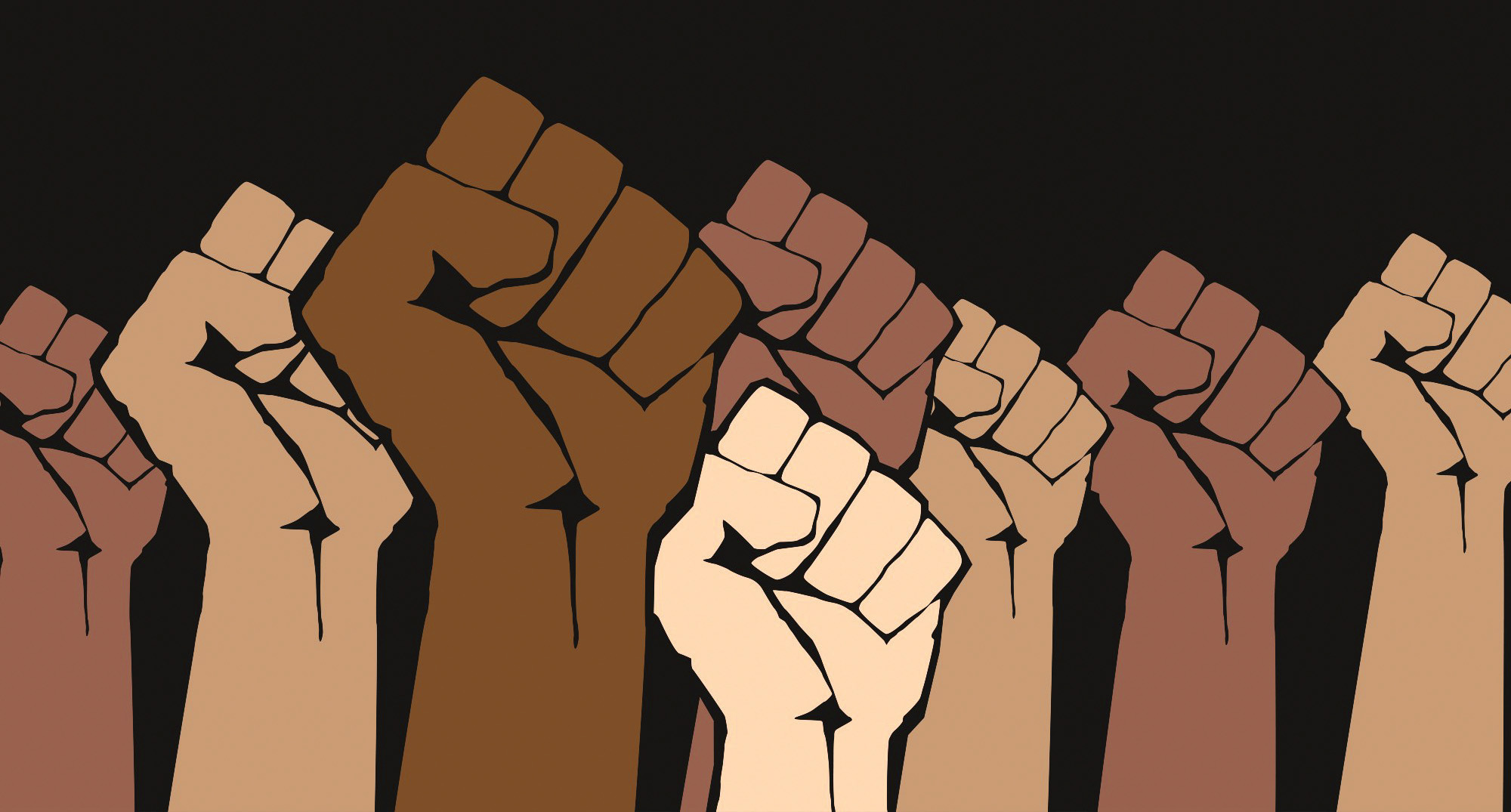 The history of the UN that centres the needs of ‘big powers’ and their leaders needs to be engaged with. (Photo: powerpublish.io/Wikipedia)
The history of the UN that centres the needs of ‘big powers’ and their leaders needs to be engaged with. (Photo: powerpublish.io/Wikipedia)
These are important goals, as the current roles, power and importance of these three organs reflect the organisation’s history, and determine which issues are taken up and agreed to. They also reflect the disproportionate levels of power wielded by some member states based on effective control of some of these organs, in particular the Security Council.
As restated in the UN@75 Declaration, the UN was primarily established to regulate conflicts between countries in the wake of the destruction of the two world wars.
The word “regulate” is used purposively as the Charter of the UN did not unequivocally seek to end conflicts but instead decides when the use of force is legal (jus ad bellum) and what is legally permitted during the use of force (jus in bello). It does not, as decried by the UN secretary-general’s High Level Panel on “Threats , Challenges and Change” (2001) provide guidance on whether the use of force is “wise” – irrespective of its legality under international law.
Under Chapter VII of the Charter, the use of force is contractual in nature. This is through the contractual undertaking of members of the UN to forfeit the protection afforded to them by Article 2(4), should their actions fall within the stipulated criteria for collective action under Chapter VII. These criteria include breach of peace, threats to peace and acts of aggression.
The Charter, at Article 39, says:
“The Security Council shall determine the existence of any threat to the peace, breach of the peace, or act of aggression and shall make recommendations, or decide what measures shall be taken in accordance with Articles 41 and 42, to maintain or restore international peace and security.”
This means that within the UN system, the Security Council is the sole body with the capacity to authorise the use of force. When the Security Council has decided to use force it can call on member states, pursuant to Article 43, to engage in collective action either directly under the authority of the Security Council or indirectly through international organisations.
These provisions and its subsequent interpretations and applications confer enormous power, literally the power over life and death through global stewardship over war and peace to one organ of the UN, the Security Council. This in turn gives the five permanent members of the Security Council disproportionate power in global affairs, and indeed over the lives and wellbeing of people across the globe.
Powers of the Security Council
The powers that these five countries have are similar to the powers that empires enjoyed in world affairs before the establishment of the UN. The word “empire” is not used lightly given the various interpretations that it has in international politics.
In her research, Aimee Adams traced the use of civilisational language and imperial intent to control and exploit the other through international law from the Law of Nations through to the UN Charter. She writes that “civilisational discourse has been employed throughout history to provide the rationale for forms of domination, exploitation and violent actions against those people determined to be outside of ‘civilised’ international society”.
The Law of Nations posited the idea that through universally binding law, Christian nations had a civilisational role over the “less enlightened”. This included having dominion over the “uncivilised” people’s land and other resources.
The Peace of Westphalia reinforced the idea that state sovereignty applied only to “civilised nations”.
The League of Nations, inspired by the white supremacist ideas of Jan Smuts, crafted Article 22 in its Covenant which gave rise to the mandate system, which, explicitly states that non-self-governing states were to be put under the curatorship of “advanced nations”.
The horrors that the primary actors in World War 2 visited on each other served to challenge the myth of “who” is indeed civilised and what civilized standards were. These uncivilised actions were rather rapidly attributed to the unique powers and actions of “evil” individuals and not to systemic and embedded values in Western “civilization”. However, because of this, the drafters of the UN Charter sought to steer away from civilisational language as much as possible.
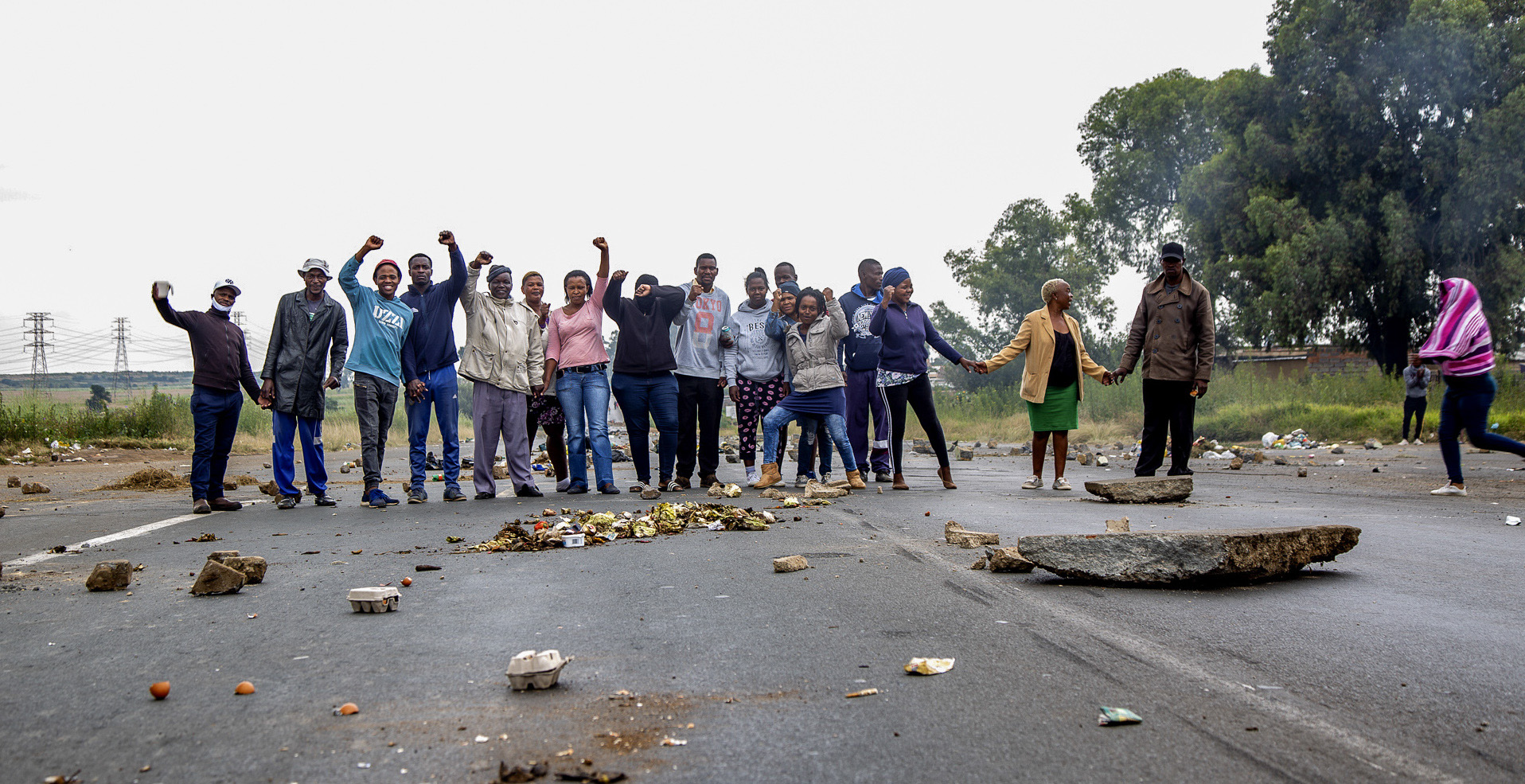 Residents of Millow Park, Boksburg protest over poor service delivery on 17 March 2021. The wellbeing of people, and therefore people-centred development, must become the raison d’être of the UN over the next decade. (Photo by Gallo Images/OJ Koloti)
Residents of Millow Park, Boksburg protest over poor service delivery on 17 March 2021. The wellbeing of people, and therefore people-centred development, must become the raison d’être of the UN over the next decade. (Photo by Gallo Images/OJ Koloti)
Nevertheless, the Trusteeship system in the UN Charter through Article 76 embraced the idea of “advanced countries” exercising “enlightening” foreign tutelage over non-self-governing territories.
Despite their best efforts, the drafters of the Charter failed to cull all civilisational language. Article 38(c) of the Statute of the International Court of Justice, appended to the Charter, reads as follows in relation to sources of law: “... general principles of law as recognized by civilized nations.”
Mark Mazower, in his book No Enchanted Palace: The End of Empire and the Ideological Origins of the United Nations, argued that the UN, like the League of Nations before it, was the manifestation of what is termed “imperial internationalism”. Mazower cites, among others, Jan Smuts, a former prime minister of apartheid South Africa, who was instrumental in drafting the preamble to the League of Nations.
Mazower writes that Smuts was one among many of the founders of the League of Nations whose belief systems were embedded in the ideology of white supremacy. According to Mazower, Smuts stated that the League of Nations would ensure “white leadership of the world” and be an instrument for a “global civilising mission”.
Smuts subsequently played a leading role in the establishment of the United Nations and helped draft its Charter.
Jessica Pearson (Defending Empire at the United Nations: The Politics of International Colonial Oversight in the Era of Decolonisation, 2017) writes that before the official meeting of what she refers to as the “50 United Nations” in April 1945, a few countries, mostly colonial powers, met to discuss the migration from the League of Nations to the UN. She notes that Smuts advocated the view that the UN would serve to “protect empire”.
Not swayed by these assurances, the French delegation was concerned that provisions in Article 73(e) of the UN Charter could serve to “weaken” their sovereignty in their overseas territories.
Despite the French fears, Article 73(e) is ensconced in a slew of provisions that does indeed serve to protect the colonial-era status quo, from the mandate system to the Trusteeship arrangement. The powers of former colonial states were only moderated by the requirement based on submissions from Belgium and the UK, that required colonial powers to report to the secretary-general on the “wellbeing” of people in the territories that they administer and control.
The point that Pearson drives though in her paper is that for many of the founders of the UN, the preservation of then existing colonial powers was of paramount concern and this complemented the de facto powers of empire, conferred onto the permanent five (P5) of the Security Council through the Charter.
Ryder et al (Decolonising the United Nations Means Abolishing the Permanent Five, 2020) also argue that the roots of the UN are colonial and that in 1945 four out of the five members of the P5 were colonial powers. While the Soviet Union and China are not generally considered to have been colonial powers in the traditional sense, the Soviet Union, for example, did exercise control over countries and territories that are now self-governing, independent states.
Ryder et al write that the P5 exerts colonial-like powers over the UN in areas that impact on all people across the globe, and more negatively, on developing countries. They point out how in 1945, the P5 were then 10% of the member states. In 2021 they represent just 3% of the total number of member states and 26% of the world’s population, mainly due to the size of the population of China.
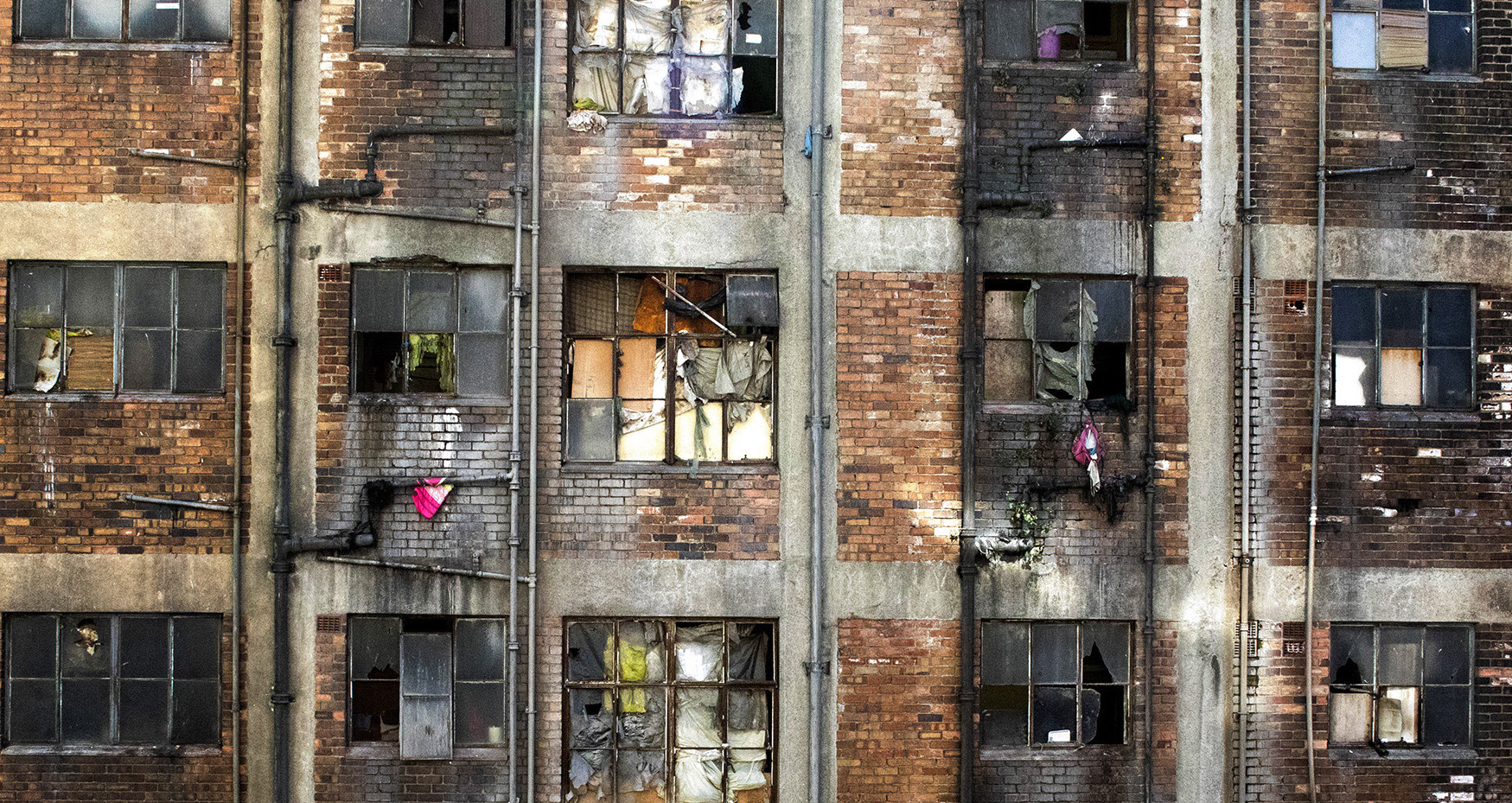 Poverty, inequality and poor governance are at the root of most conflicts. (Photo: EPA-EFE/Kim Ludbrook)
Poverty, inequality and poor governance are at the root of most conflicts. (Photo: EPA-EFE/Kim Ludbrook)
Reports commissioned by the current and former secretary-generals, including the “Report of the Advisory Group on Experts on the 2015 Review of UN Peace Building Architecture Sustaining Peace”, found that sustaining peace requires collaborative work by UN member states and civil society organisations to deal with the root causes of conflict. This included reducing poverty, inequality and democratic deficits. Issues such as the link between the impunity of the extractive industries and illicit financial flows from developing countries to developed countries were key components of “sustaining peace” which has at its core sustainable development.
The requirements for an institution geared to building sustainable peace through people-centred development is at odds with the “big power-centred” architecture of the UN. Key considerations for the configuration of the current P5 in the Security Council, in 1945, included considerations such as “working together” and “capacities”.
In 2021, there are many countries with capacities to serve effectively on the Security Council and the willingness and abilities of the P5 to “work together” diminished soon after the establishment of the UN, with the onset of the Cold War era
Decolonising the UN
Reform of the UN, 75 years after its establishment, in order for it to remain at the centre of global efforts to build peace through people-centred and sustainable development, must be centred on decolonising the institution.
The central thrust of the arguments made by Ryder et al, Pearson and Mazower is that in order to decolonise the UN, the Security Council has to be reformed. They make the compelling argument that no country deserves to be permanent in a UN and a world where democratic institutions are ideally required to engage towards building inclusive, people-centred societies. It is untenable that the UN, which is at the centre of multilateral engagements towards development, democratisation and peace, is still itself a fundamentally undemocratic institution.
Given the context of the need to decolonise the institution, how the UN serves the interests of current and former empires needs further discussion.
The onset of the Cold War made the Security Council and the UN an arena for political and hegemonic contestation between the big global powers on issues affecting global law and norms. The decolonisation process in the 1940s that brought into the UN system former colonised countries from the Global South, sharpened these political tensions. The politics of the Cold War antagonists was overlayed with the history of colonialism, racism and slavery. The entry of countries that had recently fought against colonialist oppression pitted former colonial powers and their agendas against formerly colonised countries and their agendas.
While countries of the South were increasingly aligning themselves with the then Soviet Bloc because of its support in anti-colonial struggles, they did seek some independence from this Cold War contestation between the world’s big powers. The need to carve out a voice independent of the contesting “‘big powers”, catalysed the founding of the Non-Aligned Movement (NAM).
The NAM was established by developing countries from Asia and Africa in 1955. In 1964, in response to the formation of the Organisation for Economic Cooperation and Development (OECD) by the richer countries of the North, developing countries formed the Group of 77, based on a joint declaration by 77 developing countries. The G77 has since become the largest intergovernmental organisation in the UN.
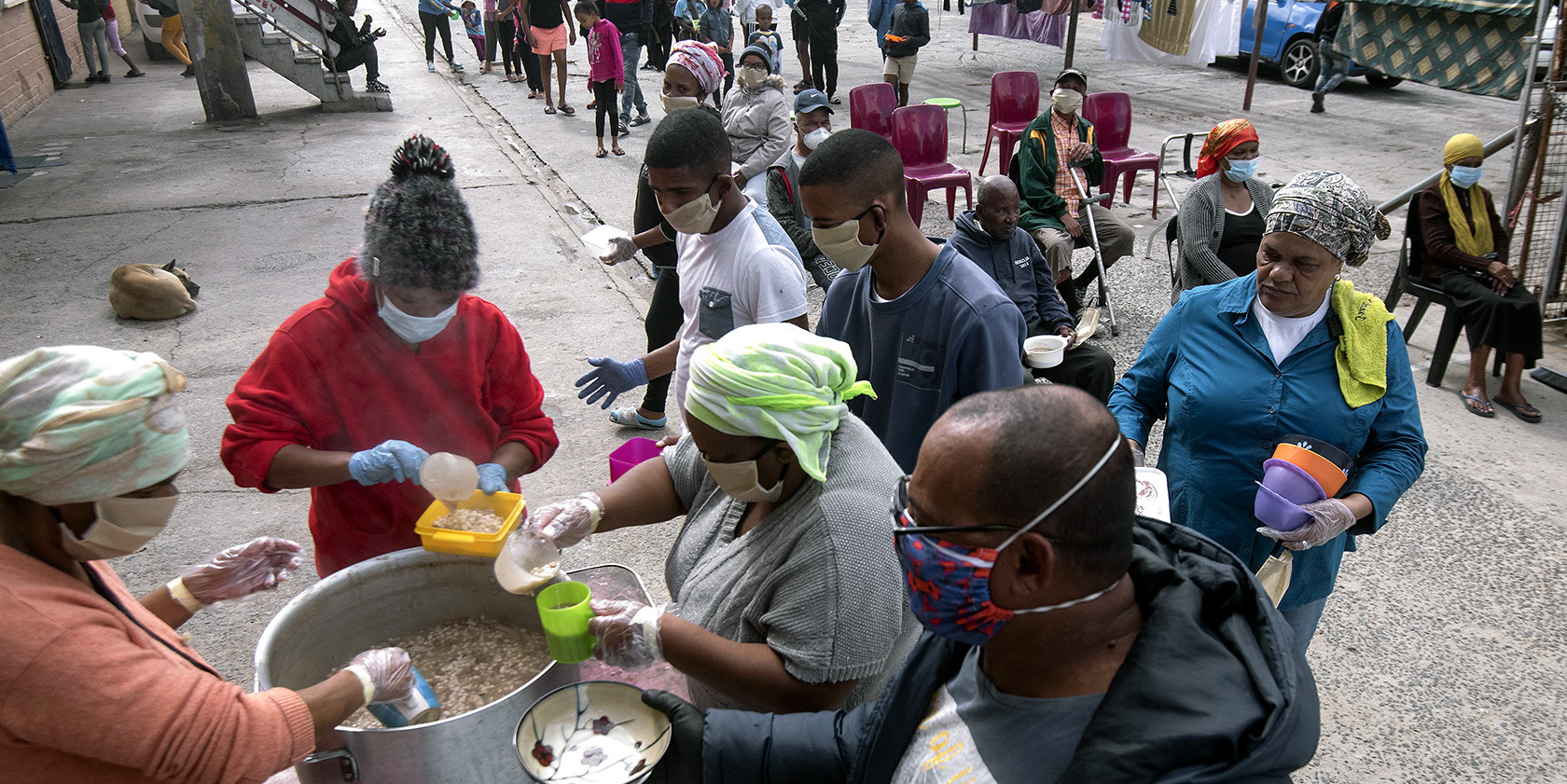 People's economies and livelihoods have been shattered by the Covid-19 pandemic, which will require solidarity-based measures to 'build back better' as stated by the UN secretary-general. (Photo:Gallo Images/Brenton Geach)
People's economies and livelihoods have been shattered by the Covid-19 pandemic, which will require solidarity-based measures to 'build back better' as stated by the UN secretary-general. (Photo:Gallo Images/Brenton Geach)
Despite the role, size and presence of the G77 in the UN, the OECD, which is not a UN organisation, tends to be more influential than the G77 on issues related to macroeconomic policy. The G77 engages on issues related to development but given the location and status of economic and development issues in the UN, the G77’s ability to shape global policy on economics and development is weak.
That the largest grouping of countries in the UN is ineffective in shaping global policy on social and economic development is due to the fact that the UN itself has limited power to shape economic, social and development policies needed for a sustainable development agenda.
Again, this is a result of the architecture of the UN.
The Charter, in dealing with issues regarding the regulation of the use of force in chapters V, VI and VII, is governed by the use of words like “will”. Meaning the decisions taken by the organ regulating the use of force are binding, and therefore the Security Council is prestigious and generally taken seriously.
The Economic and Social Council
Conversely, chapters IX and X of the Charter that deal with economic and social development and set up Ecosoc, the principal organ to lead on these matters, are governed by the word “may”. The decisions taken by Ecosoc are at best advisory and optional for member states and are therefore not as important and prestigious as the Security Council. Key resolutions such as Agenda 2030 which reflect the Sustainable Development Goals are therefore not contractual, as is the case with provisions pertaining to regulating the use of force.
Key development issues, including commitments to eradicating poverty, reducing inequality and economic policies that are solidarity based, rely on collegiate discourses among states. “Soft law” instruments are regarded as useful to the extent that over time they shape international law, especially international customary law.
However, the “over time” approach in relation to ending poverty, building substantive equality, gender equality, dealing with the climate emergency and other key issues relevant to sustainable development, requires urgent action.
Ecosoc in its current form is profoundly weak and ineffective due to this architecture. While it has 15 specialised agencies reporting to it, these organisations are autonomous and are not required to adhere to Ecosoc and related General Assembly resolutions. The weakness of a key organ like Ecosoc in relation to making and influencing global policy on health, economics, finance and development is accentuated by the roles played by non-UN institutions in global economic governance.
The emergence of the G20 and its relationship to the OECD is important.
Despite pronouncements to the contrary, the G20 and the OECD have positioned themselves as the locus for global economic governance. The OECD has historically been at the centre of developing macroeconomic “blueprints” that have shaped the nature of the global economy and especially the dominance of financial capital. Membership of the OECD and the G20 overlap, with the OECD secretariat emerging as the de facto secretariat for the G20.
The OECD was initially established in 1948 as part of the institutional framework established to manage the reconstruction and development of a war-ravaged Europe as part of the US-led Marshall Plan. The formation of the then Organisation for European Economic Cooperation (OEEC) was to foster cooperation among European powers and, together with the later formation of the European Union, signalled the start of a new wave of regional economic and political cooperation that many regard as the building blocks of what is now termed economic globalisation.
Despite its historical role and influence, the US only formally joined the organisation in 1960, together with Canada. Following the entry of the two North American partners, the OEEC relaunched as the Organisation for Economic Cooperation and Development in 1961. Given the nexus between the formation of the OECD and post-World War 2 reconstruction and development, Japan joined the OECD in 1964.
To date the OECD has grown to include 35 member countries. Most of these are from the leading economies but it also includes some smaller economies from Eastern Europe, Asia and now South America.
The OECD has always been a leading institutional “voice” for the prevailing global economic system that is based on the free flow of capital and goods. Membership of the OECD is contingent on committing to its policies on trade liberalisation.
The OECD, now conjoined with the G20, does see itself as an alternative to the UN on global health and economic and development governance matters. In 2009, Ángel Gurría, the OECD secretary-general, stated that the “G20 is fast becoming the centerpiece of today’s international economic, social and environmental architecture”, and “the OECD has been supporting the G20 Summits since its inception”.
These are emphatic affirmations of a claim to global governance leadership on economic and social development matters. But, it is not a novel idea. The former colonial powers were keen to protect the system of economic relations which was based on extracting resources from former colonised countries through the UN. If this could not be guaranteed by the UN then alternative means to assure this would inevitably be found.
Contest over economic and social policy
The decolonisation period saw a desire for the development of laws, organisations and institutions that would dilute the authority of older sovereign states. For many newly decolonised countries the UN held that promise. As former colonised countries joined forces with other developing countries to contest ideas around economic and social policy at the UN, the response of former colonial powers was to pay lip service to UN organs like Ecosoc while building global governance structures such as the G20 outside of the UN to protect their interests and maintain the current global economic and financial architecture.
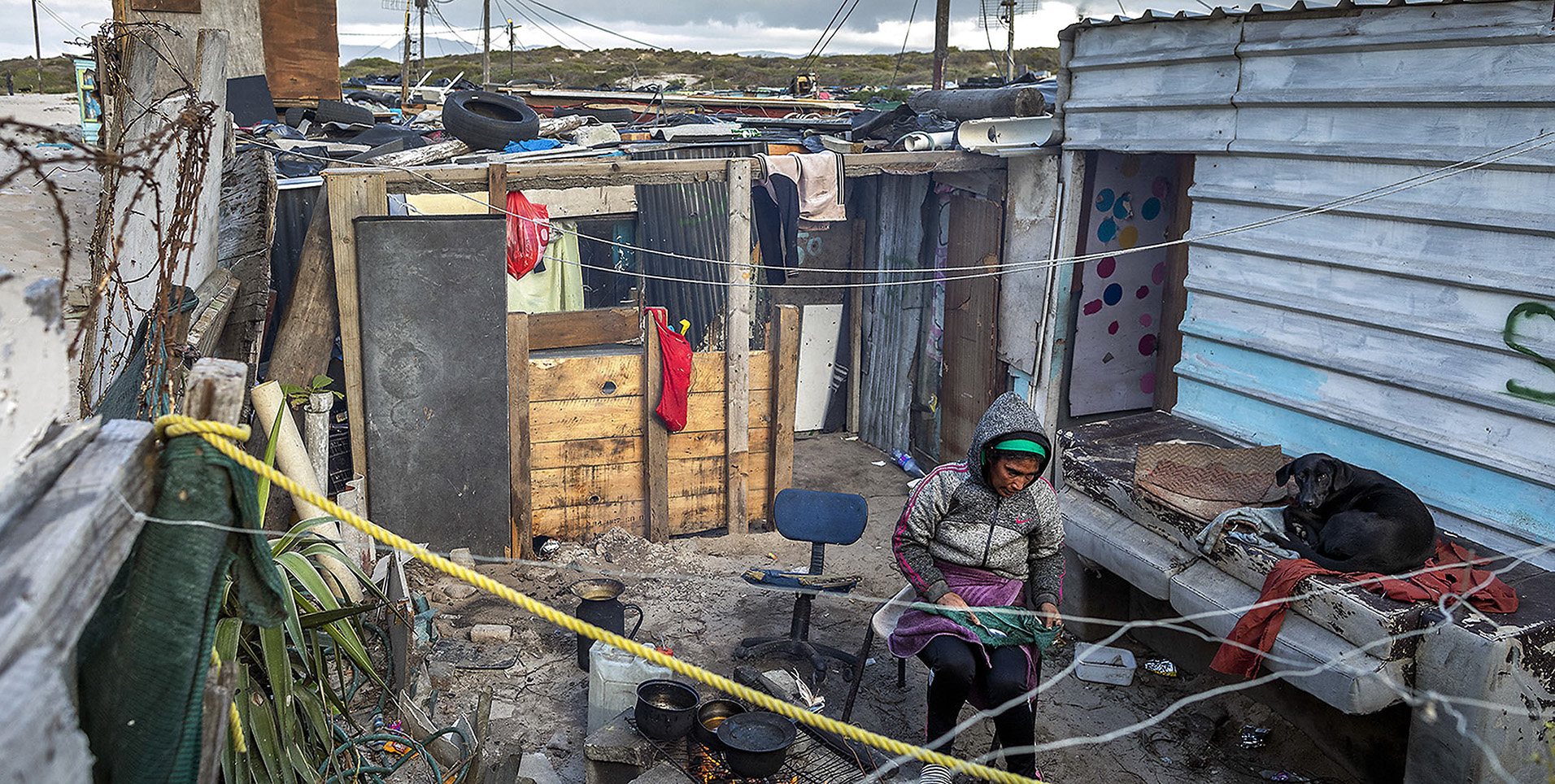 Key development issues, including commitments to eradicating poverty, reducing inequality and economic policies that are solidarity based, rely on collegiate discourses among states. (Photo: EPA-EFE/Nic Bothma)
Key development issues, including commitments to eradicating poverty, reducing inequality and economic policies that are solidarity based, rely on collegiate discourses among states. (Photo: EPA-EFE/Nic Bothma)
This situation has already led developing countries to focus on regional multilateral institutions as their own loci for developing and managing economic and social policy. This has contributed to further fragmentation of global health and development governance, with the UN ill-equipped to mediate in potential conflicts arising from different norm-setting institutions.
The weakening of the UN as the premier norm-setting body for economic and social policies will result in an inability to deal with the root causes of national, regional and global conflicts. Poverty, inequality and poor governance are at root of most conflicts, even those that, at face value, are portrayed as ethnic clashes. A UN that is effective in setting solidarity-based norms on economic and social justice matters will also be a UN that is more effective at building sustainable peace through preventing conflict.
The reform and strengthening of Ecosoc is therefore as important, if not more important, than reform of the Security Council. Both organs were designed to defend the pre-1945 systems of empire and both need to be reformed to be more inclusive and geared towards people-centred development.
The wellbeing of people, and therefore people-centred development, must become the raison d’être of the UN over the next decade.
The people of the world, represented by governments of their choosing, social movements and other forms of “authentic voice”, must replace forms of diplomacy that are centred on mediating the interests of big powers to the extent that diplomacy has become a tool for maintaining status quos.
The power of the P5 within the Security Council has been pivotal in the maintenance of the status quo with regard to the architecture and goals of the UN. It is antithetical to global governance systems that should be tuned towards the goal that Thomas Pogge in his book Poverty and Human Rights (2008) describes as “Human Flourishing and Universal Justice”.
Pogge developed the work of philosophers such as Aristotle to build on the concept of a “life well lived”. He writes that a life well lived requires that all human needs are met equitably and that in an unequal, globalised world this means that interconnected national and global institutions should be repurposed to meet these needs.
This implies that the dichotomy that has emerged in human rights discourse and practice over the past 75 years, arising from the tensions between those seeking to preserve the empire and those struggling for justice through international institutions, needs to be undone.
The dichotomy is as follows: former colonial powers use institutions of global governance to advocate for civic and political rights, but are resistant to other important human rights issues such as the right to development and the rights within and between countries. The global South uses international institutions to advocate for economic, social and cultural rights and for increased rights within and between countries.
The reason that countries from the South generally oppose civil and political rights in the UN system is not because they are opposed to them, but view the West as weaponising these rights to ensure that political and economic global imbalances remain.
A revitalised UN that is conscious that its key mandate is the wellbeing of all people, will need to reshape itself so that it and its principal organs are geared to advance all of these rights – that is civil, political, social and economic and cultural rights – equally. Accessing all human rights are essential for all to have lives that are “well lived”.
Transforming the UN and its principal organs and the historical political culture that permeates them, requires a fundamental change in the Charter of the UN. The preamble and key articles need to be changed to reflect that 75 years after the end of World War 2, the key tasks are not regulating the use of force, but to build a world that enables human flourishing and dignity. Eradicating poverty and a world where people are more equal, irrespective of where they live, are the best ways of building sustainable peace.
Changing the language of the Charter with respect to these matters, will also shape the institutions set up to implement these measures. The principal organ for development and inclusive economic policy needs to be given more prominence and prestige. The organ for peace and security should be democratised and its role be commensurate with the goals of people-centred development.
Programme of Action for Changes to the Charter
A programme of action for changes to the Charter must begin with revising Article 108 to remove the requirement that amendments to the Charter requires the consent of all permanent members of the Security Council. A two-thirds majority of the General Assembly should suffice for voting and ratification of all changes.
All references to civilisational language including references to enemy states should be deleted. The term “civilised nations” should be deleted from the statute of the International Court of Justice.
The Trusteeship Council should be disbanded, including the deletion of its enabling provisions in the Charter.
The Security Council should be democratised through, at the very least, ensuring that countries from Africa, South East Asia and South America become permanent members. Ideally, there should be no permanent members.
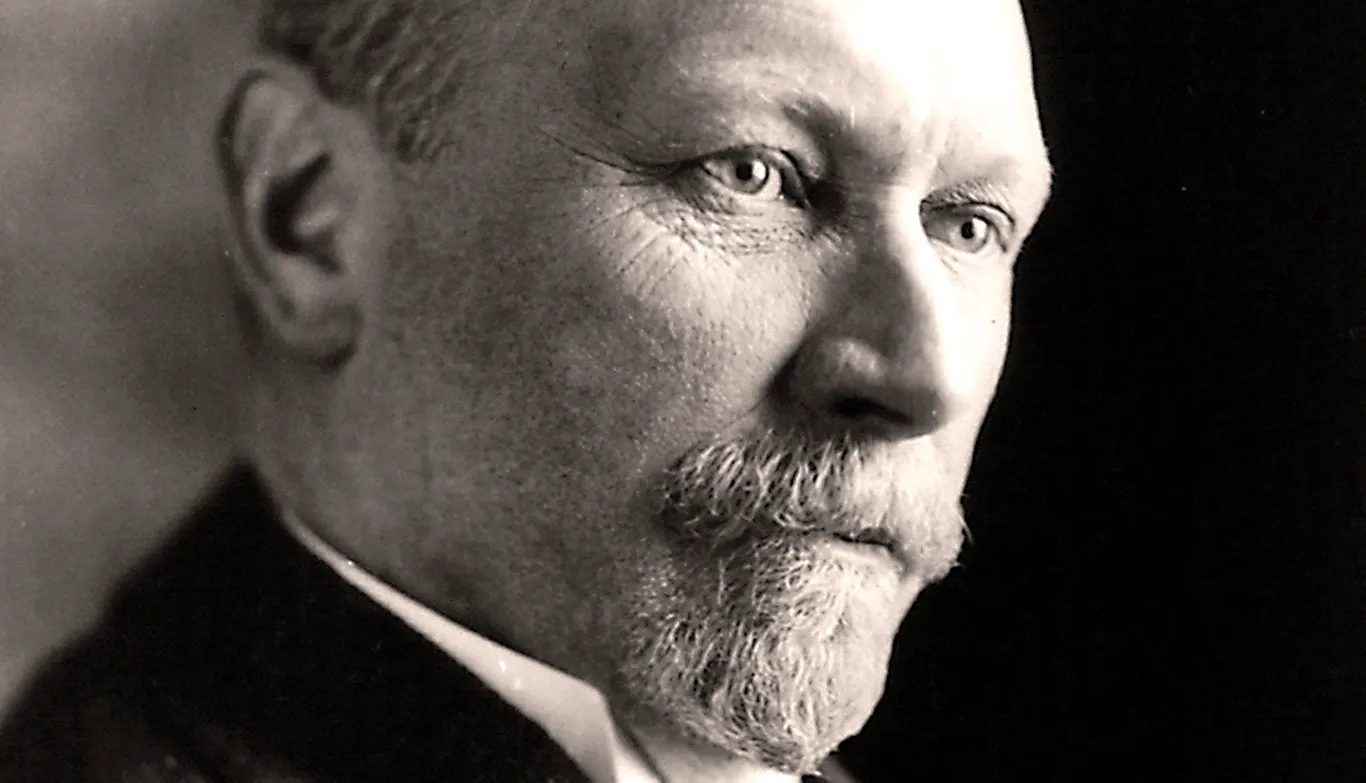 Jan Smuts, a former prime minister of apartheid South Africa, was one among many of the founders of the League of Nations whose belief systems were embedded in the ideology of white supremacy. (Photo: sahistory.org.za/Wikipedia)
Jan Smuts, a former prime minister of apartheid South Africa, was one among many of the founders of the League of Nations whose belief systems were embedded in the ideology of white supremacy. (Photo: sahistory.org.za/Wikipedia)
All members of the Security Council should be elected by the General Assembly based on their abilities and willingness to collaborate towards sustainable peace. Ecosoc should be revitalised to be the most important organ of the UN so that it can lead the global community on the kinds of policies and institutions required for sustainable development.
There is, however, significant resistance to amending the Charter. It was amended five times between 1965 and 1973. Four of those amendments enlarged the Security Council and Ecosoc. The main opponents of changes to the Charter are the more powerful countries for whom the UN plays a role in maintaining the global status quo – politically and economically.
A reluctance to recognise that the history of the Charter and international law are skewed towards big-power politics and that without fundamental changes to the UN Charter, “reform” will become an echo chamber for the next 75 years where, through redundant activism, committees will meet to make statements and pass resolutions that will tinker at the margins while nothing changes.
Significant change is necessary if the UN@75 Declaration will not be followed by a UN@80 and UN@90 declarations recalling the 2020 Declaration and repeating the same goals. In an institution where a culture of incrementalism has established deep roots, and has shaped the nature of diplomacy and negotiations, the very notion of “significant change” will be resisted by diplomats and will be discarded for more “reasonable” proposals to effect change. The latter approach will not be effective.
In sum, the UN Charter needs to be decolonised if the UN is to be a better institution in 2030. DM/MC
This paper was written as a contribution to the deliberations on developing a common agenda for the United Nations (UN) 75 years after its establishment. I was invited to do so by the Office of the United Nations Secretary-General’s Office. The UNSG has since launched his report, titled Our Common Agenda, on 10 September 2021.
Zane Dangor currently serves as the Special Adviser to the South African Minister of International Relations and Cooperation. Before joining DIRCO he worked as the Chief Operations Office at Soul City. Dangor worked at UNFPA as its interim Representative to the AU and ECA in 2017. Before that he served as the Director-General of the National Department of Social Development in South Africa. Dangor worked with the International Human Rights Law Group based in Washington DC focusing on transitional justice issues in West Africa. He worked in civil society and as a consultant in various capacities. He was a senior manager, including Executive Director at the Development Resource Centre for 10 years, where he contributed to human rights and development work nationally and internationally. He was a Managing Partner in a social consulting company, Sonke Consulting. He serves on the Board of the Institute for Economic Justice. Dangor holds a Masters In Law (LLM) in International Law and a Masters Public and Development Management both, from the University of the Witwatersrand in South Africa.




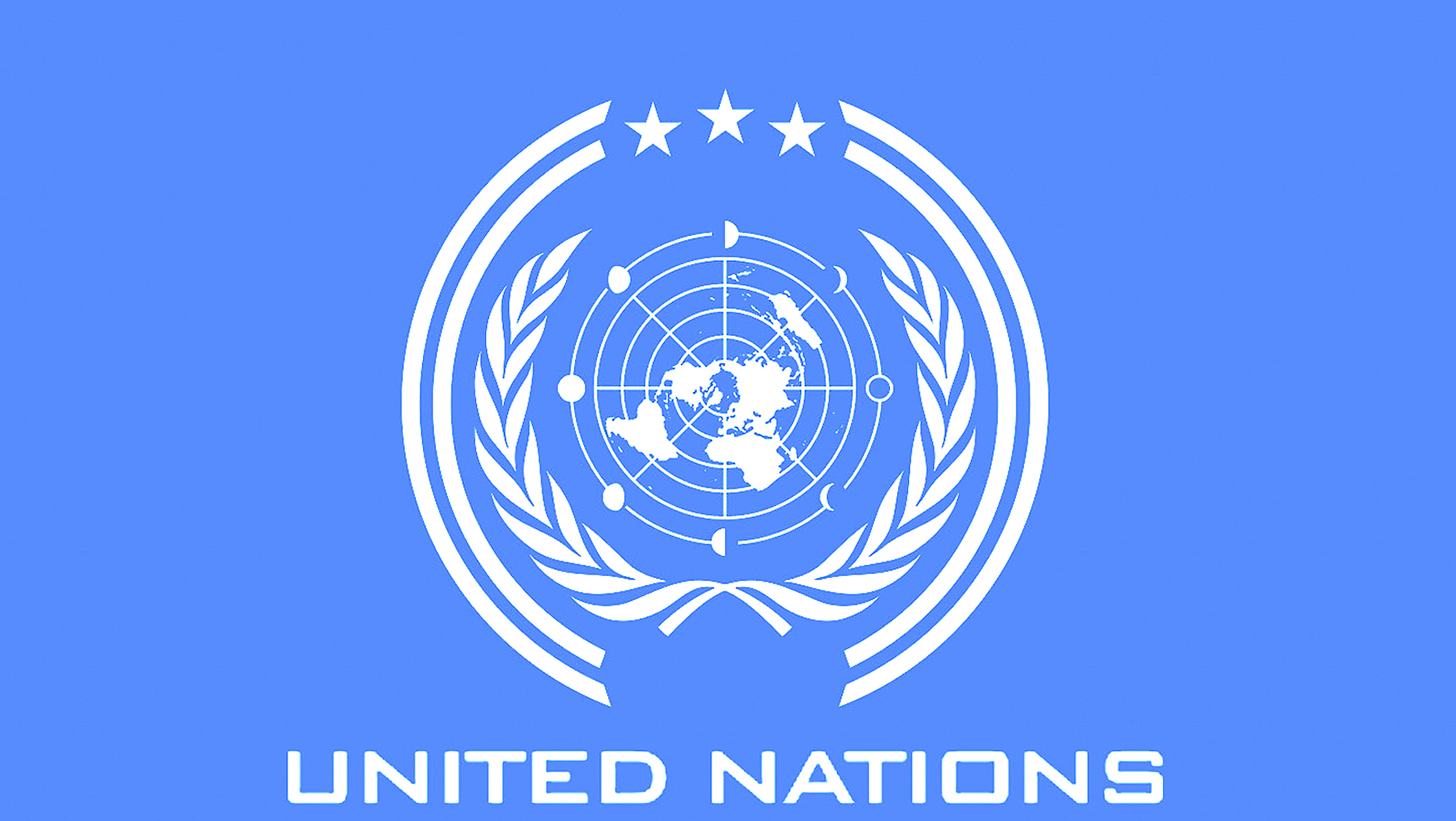 Jan Smuts, a former prime minister of South Africa, was one among many of the founders of the League of Nations whose belief systems were embedded in the ideology of white supremacy. Smuts subsequently played a leading role in the establishment of the United Nations and helped draft its Charter. (Photo: sahistory.org.za / Wikipedia)
Jan Smuts, a former prime minister of South Africa, was one among many of the founders of the League of Nations whose belief systems were embedded in the ideology of white supremacy. Smuts subsequently played a leading role in the establishment of the United Nations and helped draft its Charter. (Photo: sahistory.org.za / Wikipedia) 